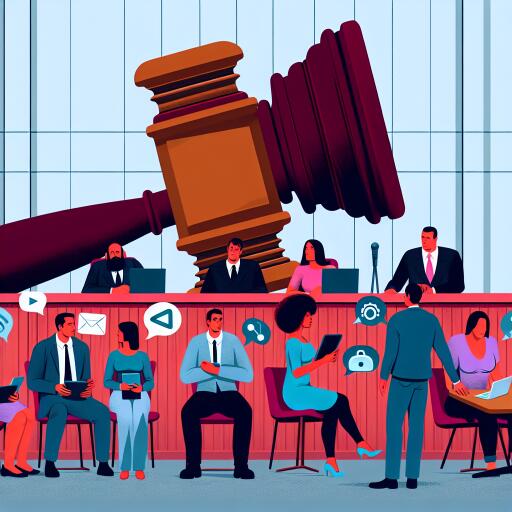During the Fact-Check Unit (FCU) hearing at the Bombay High Court, advocates representing various media organizations and digital platforms argued against a controversial rule, fearing it could potentially silence digital platforms by empowering an unaccounted body to control the dissemination of information online. The arguments were presented before Justice A S Chandurkar, highlighting the pivotal clash between government regulatory measures and the freedom of digital publications.
Senior Advocate Arvind Datar, representing the News Broadcasters and Digital Association, emphasized the danger inherent in the rule: “By a single step, an unidentified, unknown body, completely at the whims and fancy of the Central Government, can have a fact-check unit and put an end to any information by simply labeling it as misleading and stop the information from being circulated.” This assertion underscores the concerns shared by many regarding the lack of transparency and accountability within the proposed FCU.
In a week filled with critical submissions, other seasoned advocates including Navroz Seervai, Shadan Farasat, and Gautam Bhatia joined Datar in addressing the court. They collectively foregrounded the impact of this rule on journalism, online publications, and India’s democratic ethos. One of the central criticisms was the rule’s discriminative nature, impacting only digital publications while exempting print media, regardless of the content being identical. This, according to Farasat, contradicts the government’s avowed intent to purge society of false news.
Moreover, the argument extended by Farasat about the duality of regimes for print vs. digital media strikes at the heart of Article 14, exacerbating the problem of unequal treatment under the law. The underlying concern is that such discrimination not only impacts the media landscape but also affects the public’s access to diverse sources of information.
In the realm of democracy and public discussion, the Rules were criticized for restricting discourse solely to the Central Government’s narrative. Farasat eloquently argued that democratic self-governance is realized through the exchange and scrutiny of differing views, not by a unilateral decree of truth by the government. This observation is critical in understanding the foundational principles of free speech and the role of media in a democracy.
Farasat and Bhatia both stressed that the core of Article 19, which protects freedom of speech, is fundamentally attacked by the Rule. Their arguments illuminated the inherent danger in allowing the government to arbitrate on what constitutes high-value speech, effectively sidelining critical or dissenting voices under the guise of combating misinformation.
Amidst these submissions, a crucial point of contention was the absence of a clear definition of what constitutes ‘fact,’ ‘fake,’ or ‘misleading’ information, rendering the rule arbitrary and open to abuse. Datar’s remarks on the subject highlighted the subjective nature of truth and the potential for misuse in labeling content as misleading.
Furthermore, the repercussions of the Rule extend beyond stifling free speech and democracy; it also poses a significant threat to India’s federal structure by centralizing control over what is deemed true or false. This centralization, as Farasat pointed out, undermines the diversity of perspectives inherent in a federal democracy.
The arguments presented during the hearing shed light on the complex interplay between government regulation, free speech, and democracy. As the legal battle unfolds, the outcome will undoubtedly have far-reaching implications for digital media’s ability to operate without undue government interference in India.
